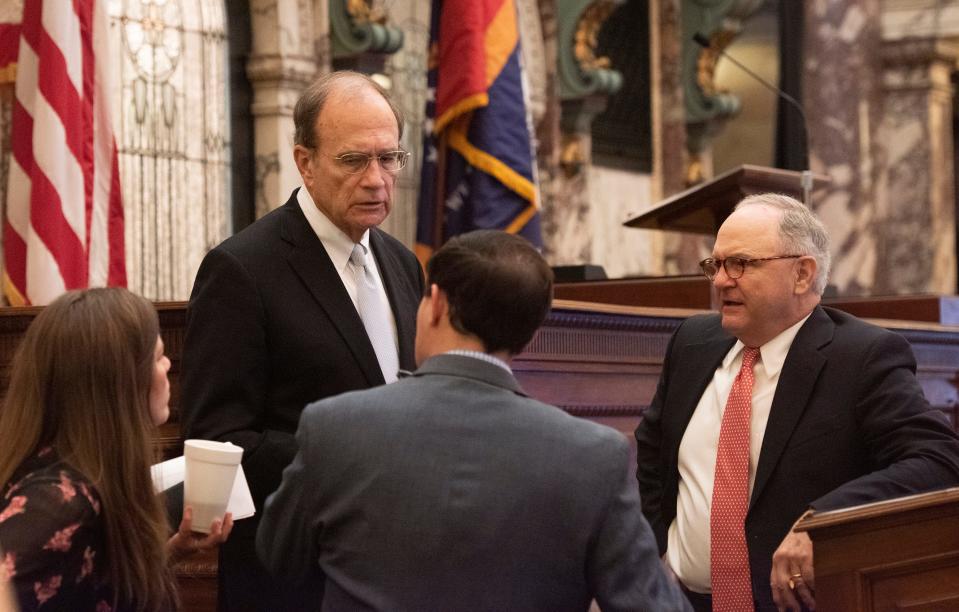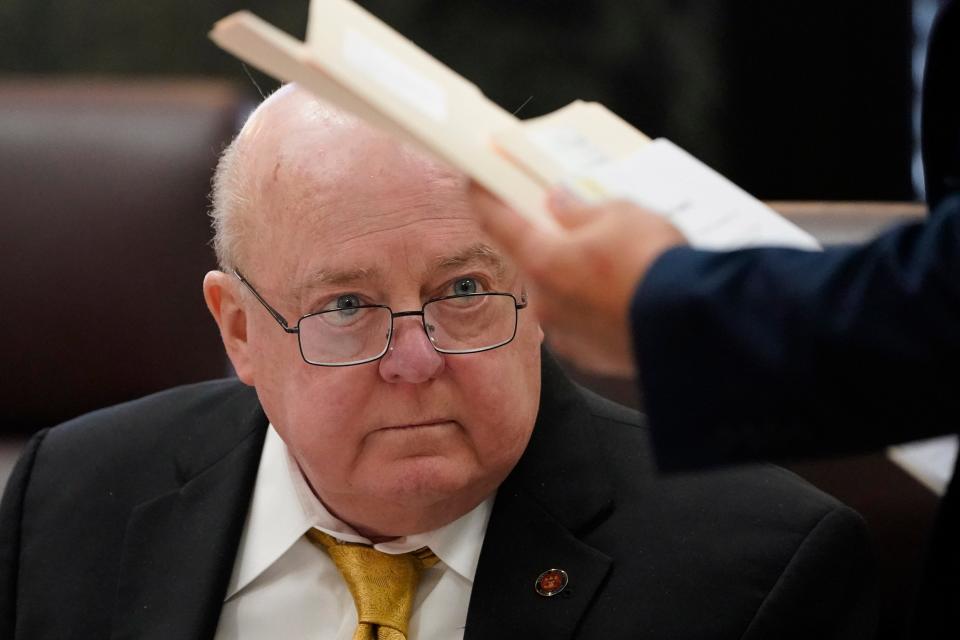Initiative petition bill resurrected by MS Senate after dying earlier in session
As Christians in Mississippi prepare for Easter, their state legislators have given them an early symbol of resurrection.
The bill to restore Mississippians ability to pass ballot initiatives died after not advancing past a deadline last week, but the state Senate voted Monday to suspend the rules and bring it up again.
The rules committee and full chamber voted to bring back Senate Concurrent Resolution 533 outside of the normal deadline. If the suspension resolution also passes the House, SCR 533 would then be treated much like a new bill. It would be again assigned to committees in the Senate and House — potentially even different ones than it was assigned to earlier — and would need to pass each before it could reach the chambers' floors.
"At my request, the Senate passed a suspension resolution to revive the initiative process this morning. House leadership has also expressed a desire to continue working on this issue. If the House agrees to this suspension resolution, the Senate will again address legislation providing Mississippians with direct input on policy. We are hopeful to come to a final agreement before sine die," Lt. Gov. Delbert Hosemann said in a statement.

Speaker of the House Philip Gunn said Monday that he would not commit to suspending the rules until he had a chance to see what the Senate would propose.
The Senate's move keeps hope alive for advocates to restore the initiative petition process, which was struck down by the state supreme court due to outdated language in 2021. That challenge was brought by longtime Madison Mayor Mary Hawkins Butler in response to the 2020 passage of an initiative to legalize medical marijuana. The legislature later passed its own plan to legalize it, but the initiative petition process has remained dormant.
Both last year and earlier this session, negotiations between the House and Senate have broken down after disagreements on the number of signatures needed for an initiative to reach the ballot.
This year, a bill passed the Senate overwhelmingly that would have again dramatically increased the number of signatures needed. Under the previous law, the number was about 110,000. The bill would have increased that to almost a quarter of a million. Supporters of the bill said that would lessen the impacts of spending from outside the state, while opponents said it would make it harder for voters to have a direct say.
Then, the House passed an amended version that lowered the vote threshold. It also made other changes including listing topics that cannot be addressed by ballot initiative like abortion and government spending.
The potential of the bill to be heard in new committees poses an interesting possible scenario. Sen. John Polk, R-Hattiesburg, chairs the Accountability, Efficiency, Transparency committee, where the bill originated in the Senate. Polk has been skeptical of restoring the initiative process and has said citizens can still have a say in government without it through their elected representatives. He brought that version to the Senate floor, but he voted against it even at the higher threshold. He then allowed the bill to die by not inviting conference, where the two chambers could have potentially negotiated. If the House votes to suspend the rules, Hosemann could assign the bill to a different committee, possibly one with a chair more friendly to the initiative petition process.

With less than a week until the legislative session is scheduled to end, it remains to be seen whether the two chambers can agree on an initiative process. If they can, it would then head to the desk of Gov. Tate Reeves, who has repeatedly said he supports restoring the initiative process, but has indicated that he would like to see a higher signature threshold.
"I think that access to the ballot is important," Reeves said leading up to the 2022 legislative session. "I don’t think that one person writing a $2 or $3 million check on any one issue to put it in our state constitution is the correct way to do it, but I do think the citizens should have access to the ballot, and it ought to be done in a way where it’s challenging to get on the ballot but that it is possible.”
The session is scheduled to end by Sunday, April 2, but may end earlier in the week as it has in previous years.
This article originally appeared on Mississippi Clarion Ledger: Could the MS ballot initiative bill come back? State Senate votes yes.

